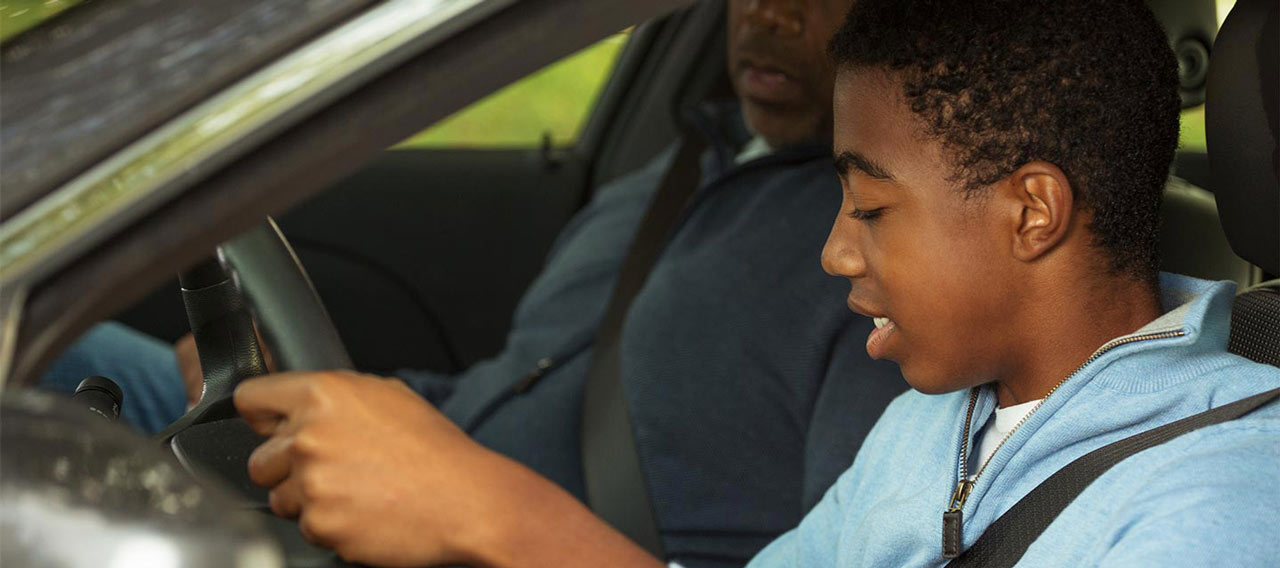There are several ways law enforcement and insurance industry experts recommend you protect your vehicle from theft through a layered approach, including:
- Park your vehicle in a secure garage, if possible.
- Park your vehicle in well-lit areas.
- If you have a second vehicle, park it directly behind the more targeted one.
- Lock your vehicle and activate any security systems to show thieves that your vehicle is protected.
- Never leave a vehicle running or the key in a vehicle when unattended.
- Cover or block your vehicle information number when parked.
- Always report suspicious activity to police.
Here are some other protective tools and measures that come at a cost and that experts suggest can be valuable investments:
- Use a visible steering wheel lock or brake-pedal lock to make your vehicle harder to steal and create a visual deterrent for thieves.
- Consider installing an ignition kill switch to keep your vehicle from starting.
- Invest in an onboard diagnostic port (OBD) protector, to keep thieves from reprogramming a new key FOB that will start your vehicle.
- Install tracking to help police track down your vehicle — and maybe even those who stole it.
- You can also have your vehicle identification number (VIN) etched onto your window. Doing this creates a visual deterrent for thieves as it's costly for them to change.
First, there's the obvious: Always take your keys with you when you park, don't leave your vehicle running, make sure your doors and windows are closed and always set your emergency brake. Don't leave the original ownership or insurance cards in your vehicle — consider a photocopy instead.
Here are some less-commonly known tips that can help:
- When parking, turn your wheels toward the curb to make it harder to tow away.
- If you have a rear-wheel-drive vehicle, back into your spot.
- If you have a front-wheel-drive vehicle, park facing forward.
Although all vehicles are capable of being stolen, vehicles with a push button keyless ignition are more vulnerable through a relay attack. These are some additional steps that you can take to make it harder to steal:
- Don't keep your key FOB near your front door or near a window. If possible, turn off the key FOB or place inside an RFID-blocking pouch (e.g. Faraday bag) when not in use, even at home. This will block your key FOB from emitting a signal to your vehicle, which will prevent the signal from being intercepted by would-be thieves to start and steal your vehicle.
- Avoid the walk-away lock. You know the one. You've parked your vehicle, you're walking away and you press the lock button from a distance. That creates a range that can leave your FOB's signal vulnerable to being intercepted.
Protecting unsuspecting consumers from buying a stolen revinned vehicle
- Be cautious when purchasing a used vehicle through a private sale. Buyers should ensure they retrieve as much historical information as possible on both the vehicle and the seller and perform due diligence in advance of providing any funds to the seller. Buyers should be suspicious of a private seller who will not provide valid identification or who insists on receiving cash as payment.
- Be cautious when purchasing a vehicle online or from an unlicensed used vehicle dealer.
- Always consider purchasing a CARFAX Canada Vehicle History Report and request to see and validate the Used Vehicle Information Package from Service Ontario that the seller provides.
- View the Vehicle Identification Number (VIN) to determine if they have been tampered with and compare the VINs – typically found on the inside of the driver’s door jam and bottom-left corner of windshield.
What to do if your vehicle is stolen?
- Report it to the police right away. The sooner police have that information and can enter it into the Canadian Police Information Centre database, the better chance there is that an officer will identify it on the road.
- Then, report it to your insurance company — something you won't have any trouble with if you've followed another tip on this list: Keep your original documents at home so if thieves do take your vehicle, they aren't taking your documents too.
- Finally, you may want to take a look at your insurance policy ahead of time to make sure it covers you for possible theft. Basic care insurance policies often don't cover auto thefts, so customers may want to consider comprehensive coverage and other top-ups like loss of use that gives you rental vehicle benefits while your claim is ongoing and limited depreciation to protect the value of your vehicle longer.
Insights and expertise



This document is advisory in nature and is offered as a resource to be used together with your professional insurance advisors in maintaining a loss prevention program. It is an overview only, and is not intended as a substitute for consultation with your insurance broker, or for legal, engineering or other professional advice.
Chubb is the marketing name used to refer to subsidiaries of Chubb Limited providing insurance and related services. For a list of these subsidiaries, please visit our website at www.chubb.com. Insurance provided by Chubb Insurance Company of Canada or Chubb Life Insurance Company of Canada (collectively, “Chubb Canada”). All products may not be available in all provinces or territories. This communication contains product summaries only. Coverage is subject to the language of the policies as actually issued.







